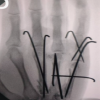Orthopaedic surgeons must prioritize continuous learning, adhere to key ethical principles, navigate industry collaborations cautiously, and aim for the welfare of patients amidst evolving ethical challenges in healthcare.
Dr. Janki Sharan Bhadani, Department of Orthopaedics, Paras HMRI Hospital, Patna, Bihar, India. E-mail: jsbhadani@gmail.com
The foundation of a successful orthopedic surgeon is built upon medical expertise intertwined with ethical responsibility, where patient care and professional integrity are inseparable. Orthopedic surgeons encounter multifaceted ethical considerations, often navigating gray areas not explicitly addressed in medical education.[1] These challenges demand adherence to well-defined guidelines and continuous learning through peer interactions, conferences, and practical experience. Understanding the nuances of ethical dilemmas is vital, as what may be considered ethical in one context can be deemed unethical in another, influenced by factors such as age, occupation, and financial considerations.[2]
Orthopedic practice is guided by key ethical principles, including honesty, confidentiality, professional behavior, informed consent, and respect for patient autonomy. Upholding these principles fosters trust between patients and health-care providers, facilitates effective communication, and empowers patients to participate in their treatment decisions. Ethical dilemmas in orthopedic practice must be understood through evolving ethical principles. Deontological principles emphasize fulfilling professional obligations, while utilitarianism prioritizes actions that maximize benefits for the greatest number of individuals.[3] Orthopedic surgeons must skillfully apply these frameworks to make ethically sound decisions, considering both individual patient needs and broader societal implications.[4].
Orthopedic surgeons must stay abreast of evolving medical knowledge to provide the best care to their patients. This commitment is not just a professional obligation but a moral imperative rooted in the ethical duty to prioritize patient welfare. Failing to update one’s medical knowledge compromises patient care and violates the ethical principle of beneficence.[5] Therefore, ongoing education is essential for maintaining ethical standards in orthopedic practice. While continuing to learn and adhere to ethical orthopedic practice, surgeons must also balance their professional development with financial commitments.
Orthopedic practice sometimes intersects with industry support, presenting both opportunities and ethical challenges.[4] While industry collaborations can provide valuable resources and progress, they also pose risks to ethical integrity. Surgeons must approach these collaborations with caution, ensuring that professional decisions remain independent and patient-centered. Conflicts of interest, biased research results, and undue influence on medical decision-making are ethical pitfalls that should be avoided. A balanced approach that prioritizes patient welfare without compromising quality is essential for navigating collaborations with pharmaceuticals and implant industries.
Beyond orthopedic practice, the health-care industry faces numerous ethical challenges, including patient rights, conflicts of interest, and access to care.[4,6] Addressing these challenges requires a commitment to ethical integrity and the promotion of equitable health-care policies. Orthopedic surgeons play a crucial role in advocating for ethical practices and policies that prioritize patient welfare.
Ethical considerations serve as guiding principles in orthopedic practice, shaping clinical decisions and professional conduct. Balancing patient comfort, quality of life, and family wishes requires sensitivity, empathy, and ethical discretion. As orthopedic surgeons deal with ethical dilemmas, they can maintain the trust of their patients and contribute to a health-care system rooted in ethical integrity and patient-centered care.
References
- 1.Sen RK, Tripathy SK, Shetty N. Ethics in Clinical Orthopedic Surgery. Indian J Orthop. 2023;57(11):1714-1721. [Google Scholar | PubMed]
- 2.McIntosh T, Antes AL, DuBois JM. Navigating Complex, Ethical Problems in Professional Life: a Guide to Teaching SMART Strategies for Decision-Making. J Acad Ethics. 2021;19(2):139-156. [Google Scholar | PubMed]
- 3.Körner A, Deutsch R. Deontology and Utilitarianism in Real Life: A Set of Moral Dilemmas Based on Historic Events. Pers Soc Psychol Bull. 2023;49(10):1511-1528. [Google Scholar | PubMed]
- 4.Capozzi JD, Rhodes R. Ethical challenges in orthopedic surgery. Curr Rev Musculoskelet Med. 2015 Jun;8(2):139-44. [Google Scholar | PubMed]
- 5.Varkey B. Principles of Clinical Ethics and Their Application to Practice. Med Princ Pract. 2021;30(1):17-28. [Google Scholar | PubMed]
- 6.Moldovan F, Moldovan L. Fair Healthcare Practices in Orthopedics Assessed with a New Framework. Healthcare (Basel). 2023 Oct 17;11(20):2753. [Google Scholar | PubMed]







